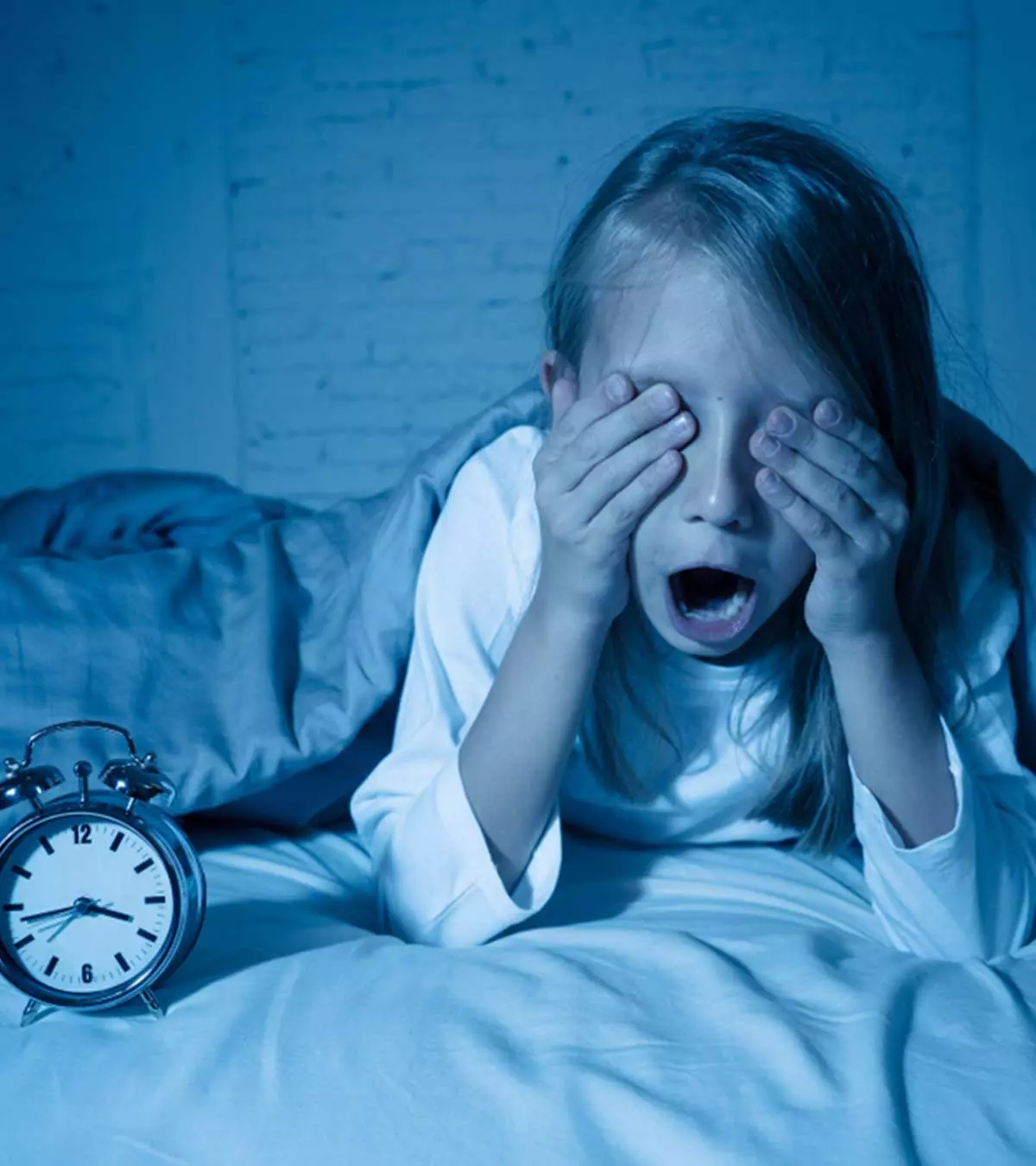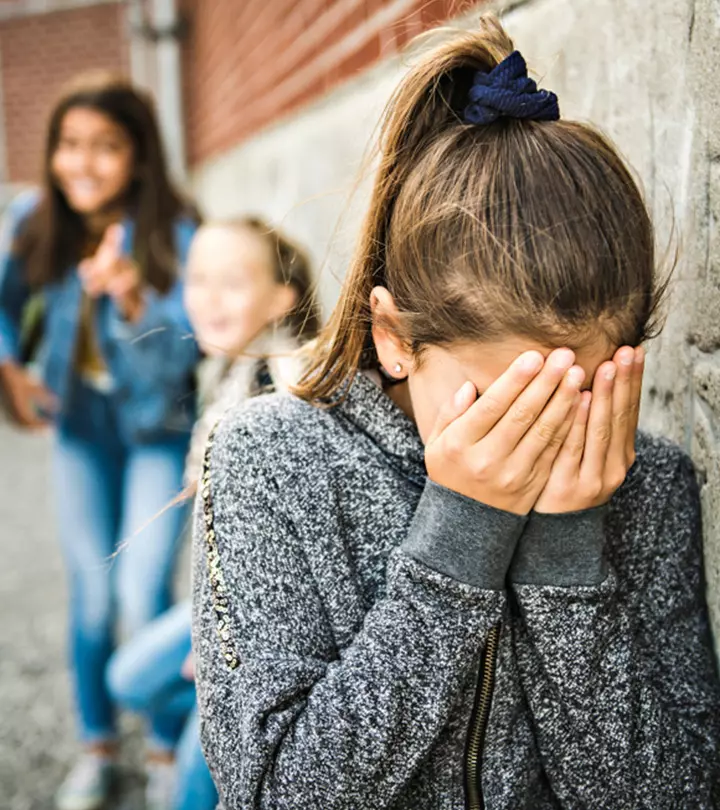
Image: Shutterstock
Bullying is a grave offense — it can negatively affect a child’s mental health and lead to poor academic performance, low self-esteem, and poor social involvement (1). While the topic of bullies in itself is uncomfortable, learning that your child is a bully can be all the more unsettling. No parent wants to be told that their child is engaging in bullying activities. It can be disheartening, but it is true that sometimes, even the brightest and the most well-mannered children can turn into bullies. This doesn’t mean that your child is a bad person; it only means that they need to be dealt with carefully to understand that what they are doing is wrong and unacceptable.
Sometimes, children don’t know any better, and it is our duty as parents or caretakers to guide them down the right path. So here’s what you need to do when you find out that your child is a bully:
1. Bring It Up With Them Immediately

Image: Shutterstock
Don’t sweep it under the rug when you learn that your child has bullied another child or was a part of a bullying episode. Instead, bring it up with them and address the problem. Let them know that you are aware of what happened, and you are in no way pleased with what went down. However, refrain from shaming or using language that can hurt them. Stay calm, have a conversation with them about it, and let them know all actions have consequences.
Children often have no idea of the consequences and implications of bullying another child. They might consider it a part of fun and games. It can only be through an elder or parents that they will learn that it’s totally not okay to bully others. Sometimes, they may be replicating what they learn at home. So make sure to do a deep analysis.
2. Understand Where They Are Coming From

Image: Shutterstock
Whenever you address a problem, you must hear your child’s side of the story too. Find out why they behave the way they do. This isn’t to give them an excuse for their behavior. Instead, it is to figure out the root cause of the problem. For example, it could be that your child bullied another child due to being previously bullied. In such cases, you should help them deal with being victims of bullying and correct them for engaging in the same activity. Or, it could be that your child bullied someone out of peer pressure. When you know this, you can teach them about resisting peer pressure, empathy, and kindness.
3. Taking Full Accountability For The Choice They Made
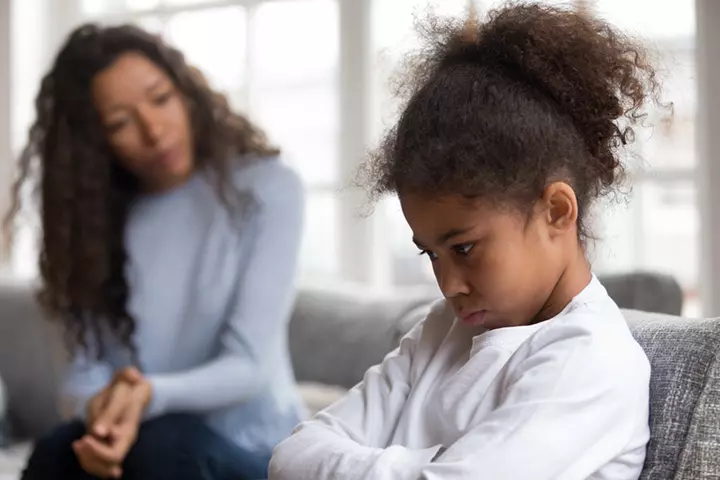
Image: Shutterstock
You and your child need to know that bullying is a choice, and if you’ve been a bully, you need to take full accountability for your actions. Make your child understand that no matter what spurred them to be a bully, it ultimately comes down to the choice they made. Sometimes your child will refuse to take accountability for their actions — don’t let that slide. Continue to have conversations about where they went wrong and why until they understand and accept their behavior.
4. Actions Have Consequences

Image: Shutterstock
It’s not fair that your child bullied another child and got away with it. This will only lead to them continuing this behavior. So, make sure that your child meets logical consequences for being a bully. For example, if your child bullied someone online through social media, then you could take away their access to online resources for a while. Take away privileges to demonstrate that in no way do you support bullying. The school might have disciplinary action for your child, and although painful, understand that you might have to stand in solidarity with the school. Your child will learn two valuable lessons that will stay with them forever — that bullying is wrong and that their parents can’t save them from the bad choices they make. We all have to suffer the consequences of our actions; the earlier your child learns this, the better. It is a bitter pill to swallow but a necessary one.
5. Don’t Shame Your Child
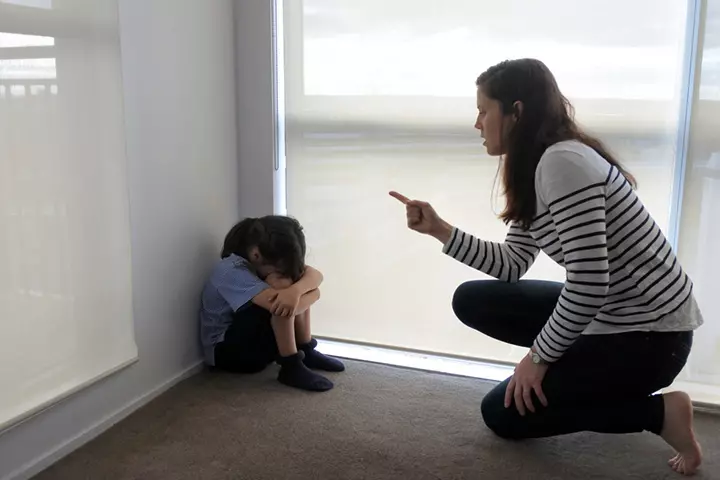
Image: Shutterstock
Children too have a deep sense of self consciousness and ego. Trying to punish them hard or shaming them for the bullying might make them want to do it more as a way to get on to you. Children learn through their mistakes. Do not shame your child for what they did, as shaming too is a form of bullying. When you use strong language or attempt to shame them for their actions, they learn that it is okay to behave in such a manner. Also, it can hurt their self-esteem. In the worst cases, shaming your child can turn them into rebels. Despite making a mistake, your child is entitled to care, affection, guidance, and support. Instead, make them understand how it affects another being and they themselves would enjoy it if they were bullied instead.
6. Instill A Sense Of Empathy
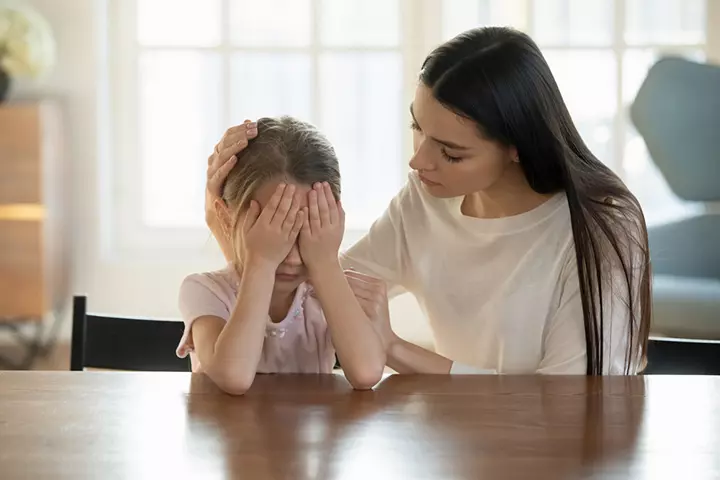
Image: Shutterstock
If we could put ourselves in the shoes of others and think for a bit, the world would be such a better place! Teach your child empathy. They probably haven’t thought about what the victims of bullying go through. Children who are bullied tend to suffer mentally, physically, and academically. Your child should know that their bullying can cause a lot of pain and trauma (1). Encourage them to apologize for their actions and to practice compassion and kindness instead.
7. Monitor Your Child’s Behavior

Image: Shutterstock
It is best to catch bullying at the earliest and nip it in the bud. In most cases, when caught early, you can end bullying behavior, but that doesn’t mean it won’t happen again. Monitor your child’s behavior or activities, so you know if they are bullying someone again. You may have to continue disciplining them to ensure that such behavior is not repeated.
It may come as a shocker to learn that your child is a bully. Don’t let your emotions get the better of you; instead, responsibly handle them. With the proper guidance and support, you can bring the best out of your child and turn them into loving, compassionate adults. What are your thoughts on this? Let us know in the comments below!
References
- Consequences of Bullying Behavior
https://www.ncbi.nlm.nih.gov/books/NBK390414/
Community Experiences
Join the conversation and become a part of our nurturing community! Share your stories, experiences, and insights to connect with fellow parents.












